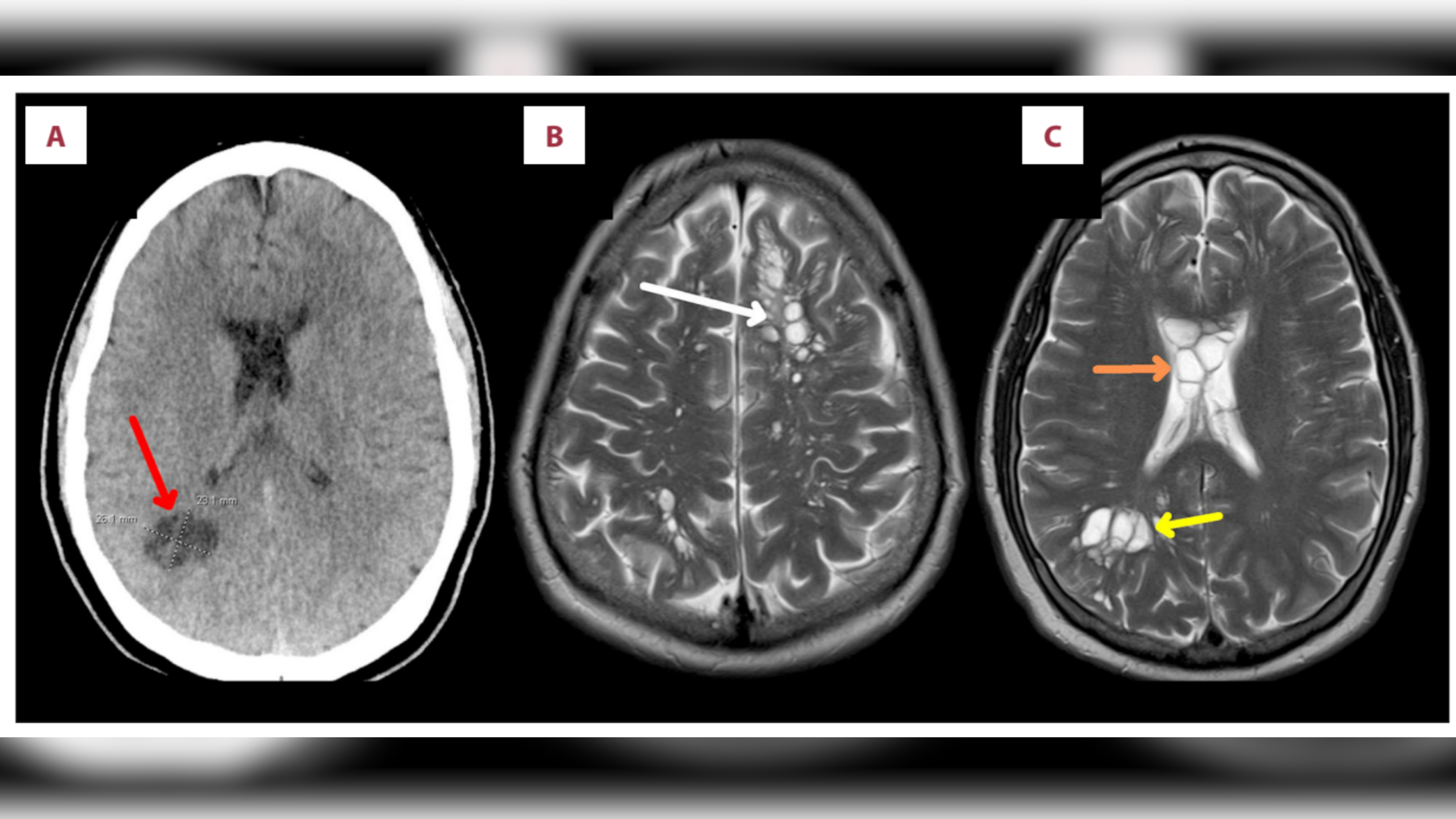
Doctors in the U.S. got a nasty surprise when they discovered that a man visiting a clinic for migraines had parasitic worms growing in his brain.
The 52-year-old man was infected with the larvae of Taenia solium, a tapeworm that normally infects pigs. This parasite can infect humans who inadvertently ingest pork that has not been thoroughly cooked, or those who consume poop containing the worm's eggs. This poop may come from a person already infected with the parasites, for instance.
Consuming T. solium eggs or larvae most often leads to a condition called taeniasis, in which small enclosed sacs, or cysts, of the worm's larvae accumulate in a person's intestines. However, the man in this case developed another condition, called cysticercosis, a version of the infection in which the cysts embed themselves inside a different tissue, such as muscle or the brain. When they embed within the nervous system, the condition is called neurocysticercosis.
Globally, between 2.5 million and 8.3 million people are estimated to have neurocysticercosis. The condition is common in developing countries, especially countries in which pigs are a primary food source and in areas where sanitation is poor. However, increased rates of international travel and immigration mean cysticercosis is becoming more common in developed countries, such as the U.S.
Related: 'Mind-control' parasite Toxoplasma hides from the immune system with 2 key genes
Neurocysticercosis most often causes headaches and seizures, with the latter symptom experienced by up to 80% of patients. Symptom severity usually depends on which structures and tissues in the brain have been infected with the worms.
The man in the recent case had a history of migraines but went to the doctor after his migraines suddenly became more frequent and severe and didn't respond to his usual treatments. He also had worsening pain across the back of his skull.
At the clinic, a computed tomography (CT) scan revealed he had multiple cysts within the white matter, or insulated wiring, of his brain — specifically the nerve fibers located deep within the organ. He had a notable cluster of cysts in the bottom right-hand corner of his brain. Concerned by what they saw, doctors "urgently" admitted the man to a hospital.
There, a magnetic resonance imaging (MRI) scan revealed further cysts in the front and middle part of the outer layer of his brain, as well as swelling, which further confirmed the diagnosis of neurocysticercosis.
The man in the recent case had an "unremarkable" exposure history, according to a case report published March 7 in the American Journal of Case Reports. He'd not recently traveled anywhere or visited a farm, for instance, and he lived in a "modern home."
However, he admitted to having a habit of eating undercooked, "soft" bacon for most of his life. The U.S. Food and Drug Administration recommends cooking pork to at least 145 degrees Fahrenheit (about 63 degrees Celsius). It is difficult to determine the temperature of cooked bacon, as it is thin meat. However, if cooked until crisp, it should have reached a safe temperature, according to the U.S. Department of Agriculture.
The doctors involved in the man's case speculated that he may have first developed taeniasis due to his eating habits and then got cysticercosis by not properly washing his hands after using the bathroom.
Following prompt treatment with anti-parasitic and anti-inflammatory drugs, the man survived the brain infection. He was successfully treated with drugs that reduced the size of the parasitic lesions, which also improved his headaches, the authors wrote in the case report.
The doctors stressed there is no reason for the average American to be concerned.
"It is very rare for patients to contract neurocysticercosis outside of classic exposures or travel, and such cases in the United States were thought to be nonexistent," the authors wrote in the case report.
This article is for informational purposes only and is not meant to offer medical advice.
Ever wonder why some people build muscle more easily than others or why freckles come out in the sun? Send us your questions about how the human body works to community@livescience.com with the subject line "Health Desk Q," and you may see your question answered on the website!







